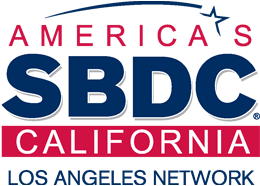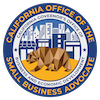Does your business source or manufacture all its goods in the USA? The “Made in the USA” tagline can be a powerful marketing tool, but it can also make good business sense.
According to the Washington Post, manufacturing in the USA can be a smart investment, even in the face of cheaper offshore alternatives. The article, written by Los Angeles-based small business owner Nicholas Ventura, cites “Five ways ‘Made in the USA’ can cut your company’s manufacturing costs.” Ventura is co-founder of Youth Monument Clothing, Inc.
“Made in the USA” is what built my business to what it is today. When starting your new business, ask yourself how you can harness the benefits of domestic production, too. You may be pleasantly surprised…” Why? Ventura cites the following advantages of US-based manufacturing:
- Inventory can be cut tremendously – Importing inventory often requires larger production runs to meet minimum orders that can tie up capital and cash flow in stock. But it’s a fine balance, as Ventura explains: “…missed sales due to lack of inventory is worse than having too much inventory in the first place. By being made in the USA, we can fulfill these orders and maintain a skinny inventory because turnaround times are quick.”
- Domestic supply chains are quicker – Turnaround time from overseas factories can be substantially slower than domestic suppliers. Sourcing domestic goods can help you meet demand more quickly.
- Forecasting becomes much easier – “The larger minimums and longer turnaround time forced us to buy production runs in large numbers and forecast trends with little confidence in our predictions,” explains Ventura. Domestic production increases agility and allows you to “react on the fly to the market” without “sitting on a ton of dead inventory.”
- You may save money – “Looking back, we would have made a better investment in developing our supply chains here in America rather than trying to cut costs from the onset,” says Ventura.
- “Think of your national pride!” – “Made in the USA” is a hot trend for a reason. “Production equals jobs – it’s a simple equation that many Americans ignore.”
Be Careful About “Made in the USA” Claims
If you are a U.S. manufacturer or are looking to promote your goods as “Made in the USA,” be sure you have a clear understanding of what this means. The Federal Trade Commission (FTC) is charged with preventing deception and unfairness in the marketplace and has the power to take law enforcement actions against false or misleading claims that a product is of U.S. origin.
If half your product is made in the U.S while the other half is manufactured in China, you cannot claim it is "American-made." To comply with “Made in the USA” standard, the FTC requires that all products advertised as American-made must be "all or virtually all" made in the U.S. Even if you don’t expressly state that your products are made in the USA (for example, in advertising or product labeling), giving the impression that your product is of U.S. origin (such as use of a flag or geographic reference) can get you into trouble if it is not accurate. Both of these types of expressed or implied statements are subject to FTC enforcement.
To learn more about potential red flags and how to ensure your “Made in the USA” product labeling, advertising or other claims are compliant with the law, check out this SBA blog: Made in the USA Labels: Information for Manufacturers, Retailers, and Consumers and be sure to refer to the FTC’s guide for business owners: “Made in USA.”
Related Articles





